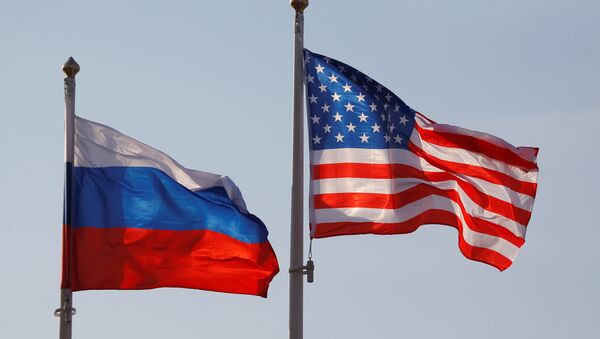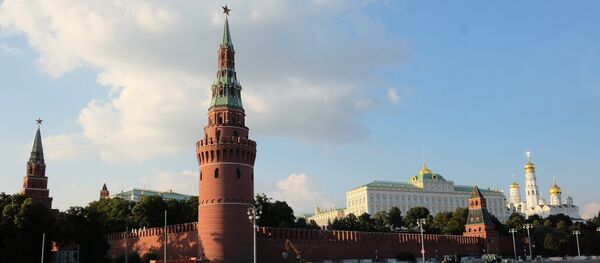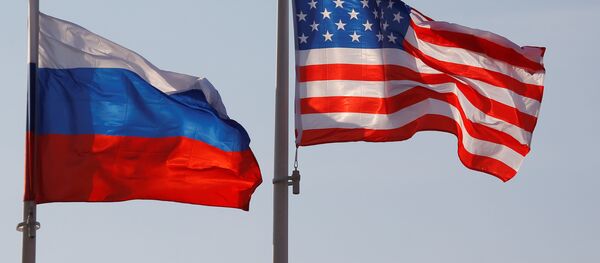WASHINGTON (Sputnik) — On Thursday, Senate Committee on Banking, Housing and Urban Affairs Chairman Mike Crapo and Ranking Member Sherrod Brown announced a bipartisan agreement on legislation to strengthen and expand current US sanctions on Russia.
"There is a deliberate campaign among elements of the US intelligence community and their congressional allies to thwart President Trump's goal of improved US-Russia relations," Australian foreign policy analyst Crispin Rovere said on Thursday.
This includes undermining the administration through classified leaks and promoting allegations of improper liaisons in the press, Rovere added.
It also means, he claimed, widening the areas of disagreement between the United States and Russia, in this case by increasing sanctions.
"As the Trump administration matures it will push back effectively, enabling the president to implement more of the foreign policy agenda that he ran on," he said.
The Russian government was not likely to over-react to the Senate bid to push through tougher sanctions as it still hoped that President Trump would prevail over his critics and succeed in defusing the conflicts of recent years, Rovere maintained.
"The Kremlin is aware that President Trump seeks improved relations but must contend with anti-Russia hysteria in Washington. Moscow has wisely not reacted to measures taken outside of the Trump White House," he pointed out.
However, if the new sanctions were actually passed into law and successfully imposed, they could cause very serious damage to long-term US-Russian relations, Rovere warned.
"If new sanctions start having a major effect, or should Trump lose control over his foreign policy agenda, then these measures will result in a deep freeze in US-Russian relations," he said.
Independent Institute Center for Peace and Freedom Director Ivan Eland told Sputnik imposing additional sanctions on Russia ran counter to the long-term US strategic interest of cooperating with Russia against future threats and challenges to both countries.
"In the long term, the US should improve relations with Russia as a counterweight to a rising China," he said.
"Research indicates that economic sanctions can usually attain only modest political goals," he said.
However, the move to increase sanctions reflected the view shared by both liberal Democrats and many Republicans that Russia had "meddled" in the 2016 election and needed to be "punished" for it, Eland warned.
Russian officials have repeatedly denied allegations of Moscow interfering the US political process, calling them absurd.



